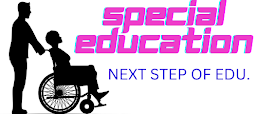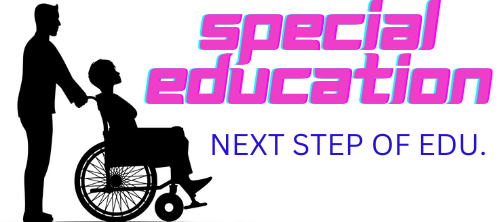B.ED SPECIAL EDUCATION COURSE
Special education courses are designed to provide specialized instruction and support to individuals with disabilities. These courses are essential for developing the necessary skills and abilities to support individuals with exceptionalities in their learning and development. Among these courses, a popular and important one is the BED Special Education course. Here are the full details of this course in 1000 words:
Overview:
The Bachelor of Education (B.Ed) in Special Education is a four-year undergraduate degree program that focuses on preparing educators to work with students who have disabilities. The program provides theoretical and practical knowledge of special education, disability, and inclusive practices. It is designed to train teachers to develop and implement individualized educational plans (IEPs) for students with diverse learning needs.
Course Curriculum:
The BED Special Education program covers a range of topics, including:
1. Foundations of Special Education: This course provides an overview of the history, philosophy, and principles of special education. It also introduces students to current legislation and policies that govern special education.
2. Educational Psychology: This course explores the psychological principles that underpin learning and teaching. It covers topics such as motivation, cognition, development, and assessment.
3. Inclusive Education: This course focuses on developing the skills and knowledge necessary to create inclusive learning environments that meet the needs of all students, including those with disabilities.
4. Assessment and Evaluation in Special Education: This course provides an overview of the various assessment and evaluation techniques used in special education. It also covers the development and implementation of individualized education plans (IEPs).
5. Behavioral Disorders and Interventions: This course explores the causes, characteristics, and interventions for students with behavioral disorders.
6. Learning Disabilities: This course covers the identification, assessment, and intervention strategies for students with learning disabilities, such as dyslexia, dysgraphia, and dyscalculia.
7. Intellectual Disabilities: This course covers the characteristics, assessment, and intervention strategies for students with intellectual disabilities, such as Down syndrome and autism.
8. Assistive Technology: This course focuses on the use of technology to support students with disabilities. It covers topics such as augmentative and alternative communication (AAC), sensory integration, and adaptive devices.
Career Opportunities:
A BED Special Education degree prepares graduates for a variety of career opportunities, including:
1. Special Education Teacher: Special education teachers work with students who have a range of disabilities, including intellectual, emotional, and physical disabilities. They develop and implement individualized education plans (IEPs) and collaborate with other professionals to provide support to students.
2. Inclusive Education Specialist: Inclusive education specialists work with schools to create inclusive learning environments that meet the needs of all students, including those with disabilities.
3. Behavior Specialist: Behavior specialists work with students who have behavioral disorders to develop and implement behavior management plans.
4. Assistive Technology Specialist: Assistive technology specialists work with students who have disabilities to identify and implement technology that supports their learning and development.
5. Educational Consultant: Educational consultants work with schools and other educational organizations to provide guidance on special education policies and practices.
6. Researcher: Graduates with a BED Special Education degree can also pursue careers in research, studying the effectiveness of special education programs and interventions.
Conclusion:
The BED Special Education course is a crucial course for individuals who want to work with students with disabilities. The course provides the necessary knowledge and skills to work effectively with students with diverse needs. Graduates of the program can pursue a variety of career opportunities, including special education teacher, inclusive education specialist, behavior specialist, assistive technology specialist, educational consultant, and researcher.
Special Education Course -
Special education courses focus on teaching students with disabilities, including physical, mental, and emotional challenges. A bed special education course prepares educators to work with students who require special attention to succeed academically and socially. This course is designed to help teachers develop specialized skills and knowledge needed to work with students who have learning, mental, and physical disabilities.
The course aims to equip teachers with strategies and methods to provide quality education to students with special needs. It is designed to help teachers understand the needs and challenges of students with disabilities, and to learn how to create a supportive learning environment that fosters success for all students. This course covers various topics, including special education laws, classroom management, assessment, and instruction.
One of the essential components of the bed special education course is the focus on special education laws and policies. Teachers need to be aware of the laws and regulations that govern special education. The course provides teachers with a comprehensive understanding of the Individuals with Disabilities Education Act (IDEA) and other laws that guarantee the rights of students with disabilities.
The course also covers classroom management strategies that are effective in managing students with disabilities. Teachers learn how to create a positive learning environment that is conducive to learning and development. This includes developing appropriate behavior management strategies, fostering positive relationships with students, and using effective communication techniques.
Assessment is another critical component of the bed special education course. Teachers learn how to identify and assess students with disabilities to determine their individual needs. They also learn how to develop individualized education plans (IEPs) that are tailored to meet the unique needs of each student.
Instructional strategies are also a crucial part of the bed special education course. Teachers learn how to develop and implement effective instructional strategies that are based on the individual needs of their students. They learn how to use technology and other tools to enhance instruction and create engaging and interactive learning experiences.
The course also covers various disabilities that teachers are likely to encounter in the classroom. These include physical disabilities such as hearing and visual impairments, learning disabilities, emotional and behavioral disorders, and autism spectrum disorders. Teachers learn how to identify the signs and symptoms of these disabilities and develop appropriate interventions and accommodations to help students succeed.
In addition to classroom-based instruction, the bed special education course includes field experiences. These field experiences provide teachers with opportunities to work with students with disabilities in a real-world setting. Teachers observe and work alongside experienced special education teachers to gain practical experience and apply the knowledge and skills they have learned in the classroom.
Overall, the bed special education course is designed to provide teachers with the knowledge and skills they need to work with students with disabilities. The course prepares teachers to meet the unique needs of each student and create an inclusive learning environment that fosters success for all students. The course emphasizes the importance of collaboration and communication between teachers, parents, and other professionals to provide the best possible education for students with disabilities.




0 Comments
Have you any doubt, Tell me ;